2024 National Tax Work Conference Deploys New Year's Work, Corporate Tax Compliance Should Emphasize These Five Aspects
On January 24-25, the National Tax Work Conference was held in Beijing, which summarized the tax work in 2023 and deployed key work tasks in 2024. In 2023, the tax department has achieved many regulatory reform results, such as the Supreme Court, the General Administration of Municipal Supervision to join the eight departments of the normalization of the work mechanism to combat false and fraudulent tax; the construction of intelligent tax, tax big data applications continue to be promoted and so on. At the same time, the meeting made specific requirements for the tax department in 2024, of which the second part "standing on the overall situation and seeking development, unswervingly playing and expanding and improving the functional role of the tax department" focuses on the direction of the reform and requirements for the tax supervision. This paper analyzes and reveals the changes and challenges of tax-related risks in key industries and fields in 2024, taking into account the trend of tax supervision reform and practice observation in recent years.
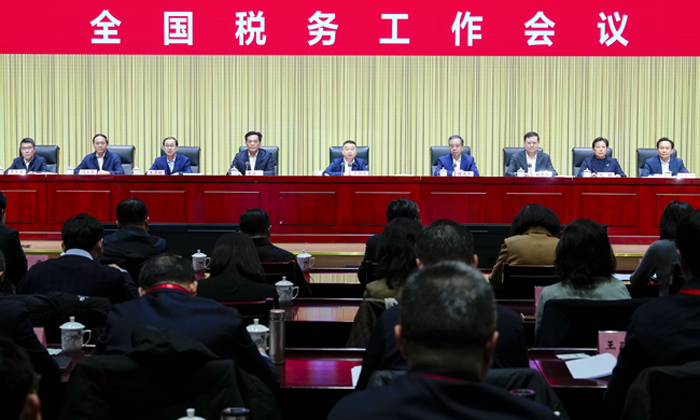
I. Organize tax and fee revenues in accordance with the law, and consolidate the foundation of national financial power
The 2024 National Tax Work Conference pointed out that in 2023, the national tax system "always adhered to the principle of organizing tax and fee revenues in accordance with the law without wavering, and firmly guarded the bottom line of not charging 'excessive taxes and fees', and organized tax and fee revenues of 31.7 trillion yuan in the whole year, so that the foundation of the country's financial strength continued to be strengthened. In 2024, tax authorities at all levels are still required to "carry the main responsibility of organizing tax and fee revenues in accordance with the law, strictly abide by the bottom line of not collecting 'excessive taxes and fees', and do their best to make the foundation of the country's financial strength stronger and more firmly built", further emphasizing the principle of tax supervision without wavering. ", further emphasizing the rule of law in tax supervision.
According to the provisions of the Law on Tax Collection and Administration, no organ, unit or individual shall, in violation of laws and administrative regulations, make unauthorized decisions on the introduction and suspension of taxes, as well as tax reductions, tax exemptions, tax refunds, tax reimbursements and other decisions that are in conflict with tax laws and administrative regulations. In the past period of time, in practice, there are some tax staff, local tax departments failed to adhere to the principle of tax law, the implementation of the tax law, the degree of implementation is not enough, resulting in a number of problems, in particular, some of the local tax departments exist in line with the local financial requirements, the levy of more taxes and fees. As far as the tax authorities are concerned, organizing tax revenues in accordance with the law and resolutely refraining from "excessive taxes and fees" is a red line that cannot be crossed. In recent years, the tax system has always demanded that no tax or fee should be levied in violation of the law or in advance, and that no delay or discount should be made in the implementation of tax and fee reductions, not to mention that the legitimate rights and interests of taxpayers and contributors should not be jeopardized; and it has been emphasized that those who have levied excessive taxes and fees and have failed to implement the policy of tax and fee reductions in a proper manner will be found to be rectified, rectified, investigated and punished together. As the tax departments and tax staffs have become more strict in their enforcement responsibilities and more standardized in their enforcement, the above phenomena of illegitimacy and non-compliance have been greatly remedied.
Taxpayers should note that under the implementation of the tax law, tax reduction and strict investigation of "excessive taxes and fees" are the two sides of the national tax collection and management, not only to ensure that the tax concessions are put into practice, but also to avoid improper law enforcement and erosion of the legitimate rights and interests of taxpayers. According to the information disclosed at the meeting, "the annual new tax cuts and tax rebates of 222.89 billion yuan, of which manufacturing and related industries benefited more than 40%, small and medium-sized micro-enterprises benefited more than 60%". From this, it is not difficult to find that the 2023 tax collection and management preferences are tilted towards real enterprises and small and micro enterprises, aiming to help the economy rebound and optimize the tax business environment. Therefore, the majority of taxpayers, especially private enterprises, should be able to comply with the provisions of the tax law and tax policy, strengthen the construction of tax compliance, grasp the dividends of tax cuts and fee reductions, and ensure that all tax incentives should be enjoyed. At the same time, if the tax authorities are considered to have imposed "excessive taxes and fees", seriously infringing on their rights and interests, taxpayers should actively resolve tax disputes on the road of the rule of law, so as to avoid missing the deadline for legal remedies.
II. Promoting the digitalization and intellectualization of tax administration reform and building a "taxation by numbers" system

The meeting pointed out that it is necessary to "continue to deepen the reform of tax collection and management, steadily push forward the promotion and application of fully digitalized electronic invoices, expand the scope of the new nationwide unified e-Tax Bureau, deepen and expand the application of tax big data, and enhance the effectiveness of digitalized and intelligent governance," which puts forward new requirements for the construction of smart tax in 2024. The "tax governance by numbers" is advancing.
In 2023, with the initial completion of the national unified and standardized e-tax bureau and the on-line pilot, and the steady promotion of the fully digitized e-invoice, the "four pillars and eight pillars" of the intelligent tax will basically be formed.In 2024, the tax system will further intensify its efforts to promote the construction of intelligent and digitized tax collection and management.
First, the nationwide promotion of fully digitized electronic invoices will be accelerated to replace traditional paper invoices, which will greatly enhance the efficiency of tax collection and management, while strengthening the supervision of invoice risks. In November 2023, all regions in the country have been realized to be included in the pilot scope of invoicing and receiving invoices of digital and electronic invoices, and the main work now focuses on promoting the use of digital and electronic invoices by more enterprises. With the introduction of digital invoicing, invoices can be regulated in the whole process and chain.
It is worthwhile for taxpayers to note that digital power invoices may also be suspected of false invoicing. Just in 2023, Shenzhen announced the first case of false invoicing of digital electricity invoices, in which a criminal gang controlled 15 shell small-scale taxpayer enterprises, and in the absence of real business transactions, was suspected of falsely issuing 814 fully digitized electronic invoices for life services to the outside world, with a total amount of 7,546,100 yuan in price and tax. Therefore, the majority of taxpayers should also guard against possible risks of false invoicing when enjoying the convenience brought by digital electronic invoices.
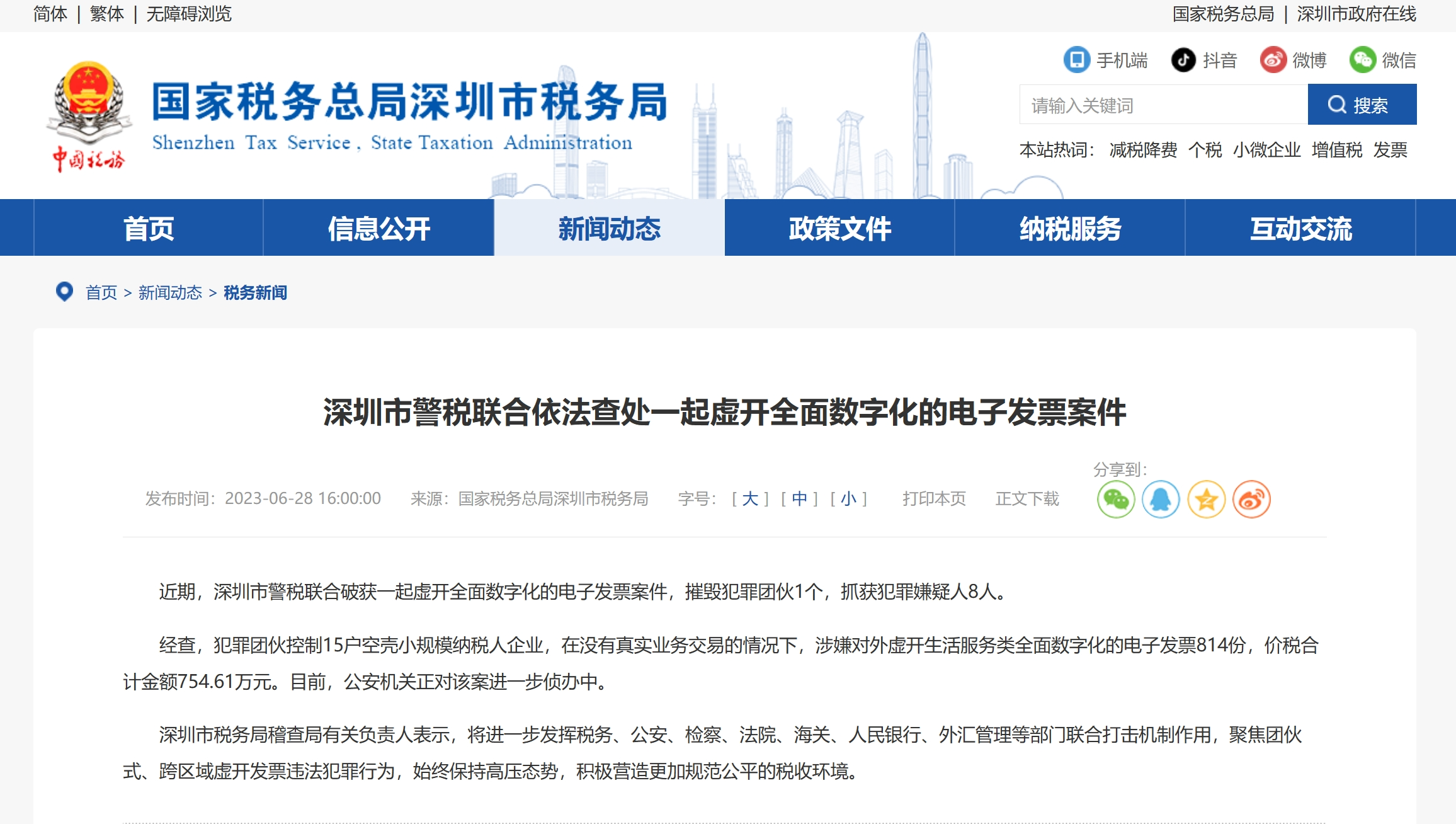
Secondly, deepening and expanding the application of tax big data is also a key part of 2024 tax work. Through in-depth mining and analysis of massive tax data, the tax department will be able to more accurately grasp the situation of tax sources, more effectively prevent and combat tax violations, and provide strong data support for tax collection and administration. Through the reform of these digital and intelligent means of collection and management, the tax department will further realize the precision and efficiency of tax collection and management, and enhance the level of service and management capacity.
III. Actively playing the role of the eight departments' regular mechanism for combating fraud and deception
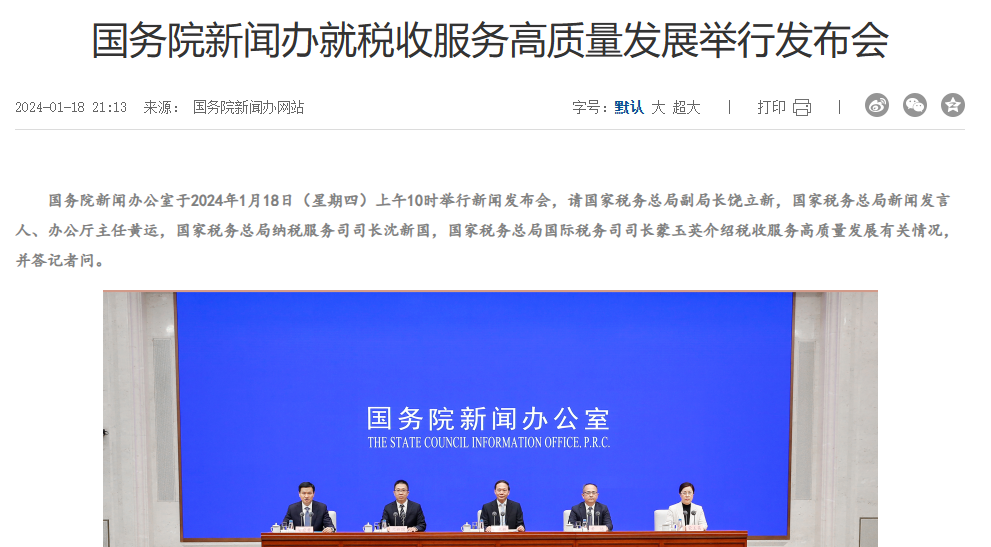
The meeting pointed out that "efforts will be made to strengthen and improve tax supervision, further consolidate the foundation of levy management, and actively play the role of the standing mechanism of the eight departments in combating tax-related crimes", emphasizing the role of the joint work of the eight departments in combating tax-related crimes. The joint action of the eight departments will launch a more precise and powerful crackdown on illegal behaviors such as false invoicing and tax fraud. By strengthening information sharing, deepening collaboration and cooperation, and reinforcing joint punishment, the eight departments will build a seamless supervision network, so that tax-related crimes and offenses will have no place to hide.
Prior to this 2024 National Tax Work Conference, at a press conference on high-quality development of tax services held by the Information Office of the State Council in Beijing on January 18, 2024, a spokesperson for the SAT pointed out that in 2023, "the tax departments investigated and dealt with 135,000 suspected unlawful taxpayers in accordance with the law, recovered losses of all kinds of taxes amounting to RMB 181 billion yuan, and cooperated with public security departments to take action against 8,228 suspects took coercive measures, and 539 suspects surrendered", with the focus remaining on cracking down on fraudulent issuance and tax cheating.2024 will see a continuation of the above regulatory measures, in an effort to maintain the rule of law and a fair economic and tax order.
It is important to pay attention to the fact that the eight departments' regular working mechanism for combating fraud and falsehood deepens the degree and utility of joint departmental collaboration, and will be more forceful in combating tax-related illegal and criminal behavior. Firstly, information sharing and communication and collaboration will be strengthened, breaking down the information barriers between departments and realizing real-time sharing and rapid response of tax-related information. This will help timely detection and investigation of tax-related criminal offenses and prevent their spread and proliferation. For example, market regulators have information on the establishment of companies, changes in shareholdings, and deregistration of companies; and courts have information on contractual gains, gains from breach of contract liabilities, and changes in property rights and shareholdings obtained by taxpayers in civil cases. By pushing and sharing such information, it will greatly enrich the sources for tax authorities to select cases for audit and highlight the direction and focus of future tax collection and management.
Secondly, the joint departmental efforts will also strengthen the joint disciplinary efforts, and the substantiated tax-related criminal acts will be severely punished in accordance with the law and the typical cases will be publicly exposed, so as to form a strong deterrent effect on the potential tax-related offenders.
IV. to strengthen the high-risk key areas of targeted remediation, to promote accurate supervision and control.
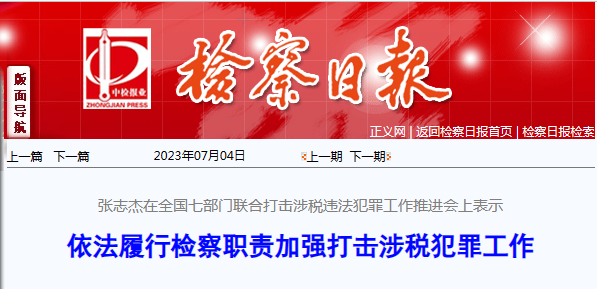
The meeting pointed out that it is necessary to "strengthen targeted remediation of high-risk key areas, and promote precise supervision and investigation to promote governance". However, the meeting did not provide a clear scope of high-risk key areas. At a press conference on January 18 on the high-quality development of tax services, the leadership of the General Administration of Taxation (GATT) proposed that it would "focus on key industries and key areas to carry out special remediation of the risk of tax-related violations," which named "tax supervision in the field of culture and entertainment".
In addition to the entertainment sector, during 2023, the SAT and other eight departments have also put forward requirements for the supervision of high-risk key areas. These include:
The first is to continue to crack down on tax-related criminal acts of false invoicing and fraudulent export tax refunds.At the regular conference of the General Administration of Taxation in May 2023, the leaders of the General Administration of Taxation put forward the following: on the basis of adhering to the five-pronged strategy of "quick tax refunds, fierce fight against fraudulent refunds, rigorous investigation of internal errors, welcoming external supervision, and sustained publicity," exploring the use of international intelligence exchange to assist in the investigation and collection of evidence, and cracking down on the fraudulent export of tax refunds. On the basis of the five-pronged strategy of "fast refund of tax, fierce fight against fraudulent refund, strict investigation of internal errors, welcome of external supervision, and continuous publicity," the SPP explored the use of international intelligence exchange means to assist in the investigation and collection of evidence, and cracked down on the fraudulent export tax refund. rebates and government subsidies, using shell companies to make violent false openings, and other serious tax-related crimes."
Secondly, according to the cases notified by the SAT since 2023, as well as typical cases exposed by localities, a large number of cases reflect tax evasion at gas stations; tax evasion in the field of recreation and culture; violation of tax preferential policies such as enjoying R&D expenses and adding credits; and problems in some pharmaceuticals, renewable resources, and the acquisition of agricultural products. Therefore, industries involving agricultural products, the purchase and sale of bulk commodities, foreign trade and export tax refunds, and renewable resources continue to be high-risk key areas for the tax authorities to monitor.
V. Serious governance of local investment promotion in tax-related issues in violation of the law
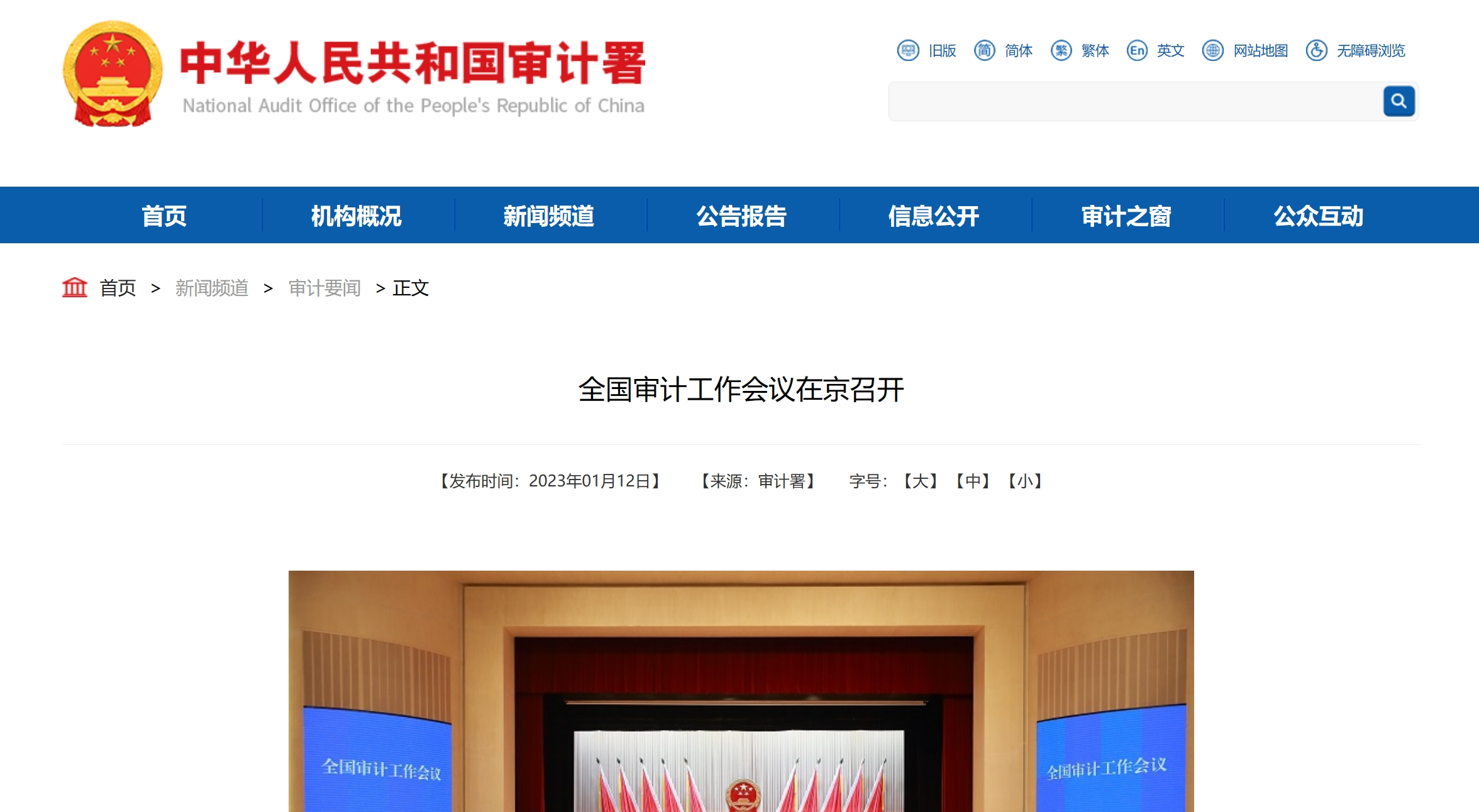
The meeting pointed out that we must "seriously manage local investment in tax-related problems, strictly grasp the unified standardized implementation of tax policy, strictly prohibit the tax department and tax cadres involved in cooperating with the illegal investment". This work requirement is this year's multi-departmental joint proposal to focus on solving the problem. The National Audit Work Conference held on January 11, 2024, put forward the work requirements of "in-depth revelation of some local investment in violation of the introduction of small policies, the formation of tax puddles and other issues, and seriously investigate and deal with the irregular tax return phenomenon".On January 18th, the tax service of the high-quality development of the press conference, the General Administration of the leadership also put forward: 2024 to "seriously investigate and deal with tax-related problems in illegal investment promotion" this work requirements.
In the past, financial incentives and tax rebates have occupied an important position in the local investment strategy, which is a key means to attract investment and a cornerstone for the survival and development of many start-ups. However, in recent years, these policies have faced many controversies in terms of rationality and legality, and the State Council has repeatedly put forward requirements to gradually clean up and standardize local policies.
Against this background, business operations are caught in a dilemma: on the one hand, they have to maintain normal operations and development, and on the other hand, they have to cope with the compliance pressure and economic pressure brought about by policy adjustments. In order to continue to operate soundly, taxpayers must pay more attention to tax compliance, not only to ensure that they communicate fully with the tax authorities at the beginning of their business to clarify the compliance of their business as well as the scope of application of the relevant policies, but also to pay continuous attention to the changes in the relevant tax laws and regulations in the course of their daily operation, so as to avoid irregularities caused by failure to follow the policy to adjust their business.
Tax compliance is not only a necessary measure for enterprises to cope with policy adjustments, but also a cornerstone for their long-term development. Only by maintaining a high degree of awareness of tax compliance can an enterprise be invincible in the increasingly strict tax regulatory environment and realize sustainable development. Therefore, taxpayers must fully recognize the importance of tax compliance, as one of the core concepts of business operations, throughout the development of enterprises.
VI. Summary: Strengthening Tax Compliance and Realizing Healthy Development of Enterprises
The rule of law in tax supervision and tax enforcement is an important cornerstone for building a modernized tax system. With the continuous implementation of China's tax laws and regulations, a clear system of tax laws and regulations has basically been formed, which will continuously prompt the formation of a fair, transparent and efficient tax supervision mechanism and the implementation of strict and standardized tax enforcement. The rule of law in taxation not only guarantees the stability and sustainability of state revenue, but also effectively safeguards the market economic order and the legitimate rights and interests of taxpayers. Therefore, taxpayers should continue to strengthen the construction of tax compliance, continuously improve the level of tax management, adapt to the increasingly standardized legal environment of tax supervision and enforcement, and realize the sound development and long-term interests of enterprises. When tax risks erupt or disputes between taxpayers and enterprises occur, they should actively seek remedies through legal channels to safeguard their rights and interests.





